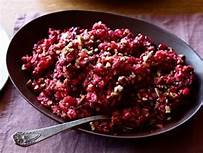Importance of well balance diet
All food contains all of the nutrients we need to be healthy, it is necessary to eat various foods in sufficient amounts. A good diet will include many different foods, and sufficient in quantity and quality to meet an individual’s need for food energy and other micro nutrients.
CABBAGE
Typical serving size:
½ cup, cooked (75 g), or 1 cup raw (89 g)HOW IT HARMS
WHAT IT HEALS
Health Benefits
Very low in calories (a cup of chopped raw green cabbage contains a meager 20 calories), the lowly cabbage is a rich source of vitamin C (with 33 mg per cup)
Red cabbage contains almost twice as much vitamin C as the green cabbage, while the green variety contains twice as much folate as the red; both red and green cabbages contribute potassium and fiber
Savoy cabbage is a good source of beta-carotene
Health Benefits
Helps prevent colon cancerPeople who eat large amounts of cabbage have low rates of colon cancer
Cabbage contains bioflavonoids and other plant chemicals that inhibit tumor growth and protect cells against damage from free radicals
Protects against breast cancer
Cabbage contains sulphoraphane, which has potent anticancer properties
One study found that women who ate the most cabbage and its cruciferous cousins, like broccoli and brussels sprouts, had a 45 percent lower breast cancer risk than women who ate the least
Other chemicals in cabbage also speed up the body’s metabolism of estrogen, a hormone that, in high amounts, is associated with breast cancer
Helps prevent cancers of the female reproductive system
The chemicals that hasten estrogen metabolism may also protect against cancers of the uterus and ovaries
Of particular interest is indole-3-carbinol, a component that in animal studies reduced the risk of cancer
Helps protect against and manage diabetes
Red cabbage is rich in natural pigments called anthocyanins, which new research suggests may help boost insulin production and lower blood sugar levels
High in fiber and low in calories, cabbage is low-glycemic, especially when prepared with vinegar, which also helps manage diabetes
May help you lose weight
You can fill up on cabbage without adding many calories
Health Risks
Cabbage contains bacteria that live naturally in the intestinal tract and cause gas and bloating
Avoid it if you have a gastrointestinal condition such as Crohn’s disease or ulcerative colitis and if it triggers inflammation
Old School
Cabbage juice is a miracle cure for ulcersNew Wisdom
There’s no proof that cabbage juice cures ulcers, but there’s no harm in itSome cabbage dishes can be high in calories or salt
Be wary of store-prepared coleslaw, which can be soaked in mayonnaise and thus outweigh any nutritional benefits
Rinse sauerkraut before heating to get rid of excess sodium
When preparing coleslaw yourself, reduce calories by using low- fat yogurt, vinegar, and oil
Certain preparations contain sulfites
Allergies
QUICK TIP:
Cook it fast To minimize the odor that accompanies cooked cabbage, cook the cabbage quickly in an uncovered pan with as little water as possibleOvercooking also destroys cabbage’s stores of vitamin C




